Sustainable tourism is booming in Vietnam, according to recent press reports. Travelers are now more aware of the
environmental and societal impact of their stays, and are looking for ways
to travel more responsibly. The media is picking up on this trend, highlighting initiatives and destinations promoting sustainable tourism in the country.
Before giving you some recommendations for an
eco-responsible trip to Vietnam, allow me to summarize the main points raised by the local press on this subject.
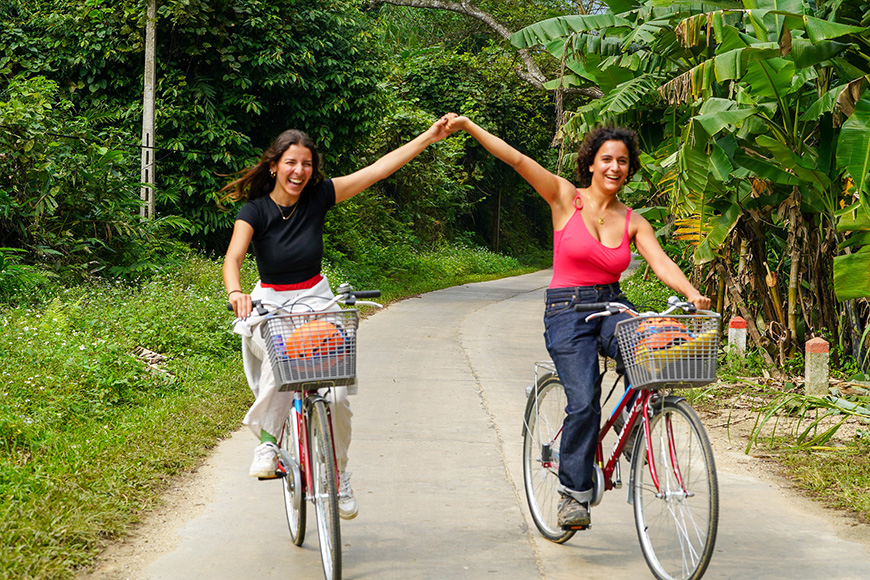
Experience a sustainable trip in Vietnam - Photo : Mr Linh's adventures
Sustainable travel in Vietnam, what the press says
The importance of preserving the environment
Protecting fragile natural sites, such as Ha Long Bay and the rice terraces of Sapa,
is a crucial issue. The press encourages travellers to choose eco-friendly accommodation and activities that respect the environment, such as hiking and cycling.
The fight against plastic pollution is also an important issue. The press applauds initiatives to reduce the use of single-use plastic in tourist destinations.
The importance of sustainable tourism
The media emphasize the
importance of sustainable tourism in preserving Vietnam's fragile environment and its local communities.
Unregulated tourism can lead to pollution, degradation of natural sites and exploitation of local populations.
Sustainable tourism aims to minimize these negative impacts and maximize the positive spin-offs for local communities and the environment.
Sustainable tourism initiatives
The media spotlight many
initiatives and businesses promoting sustainable tourism in Vietnam. These include eco-friendly accommodation, responsible trekking and cycling tours, and homestay projects that allow travelers to immerse themselves in local culture.
These initiatives aim to reduce the use of plastic, promote sustainable agriculture and support the preservation of biodiversity. They offer travelers eco-responsible alternatives for discovering the country while minimizing their environmental impact and enhancing the value of local communities.
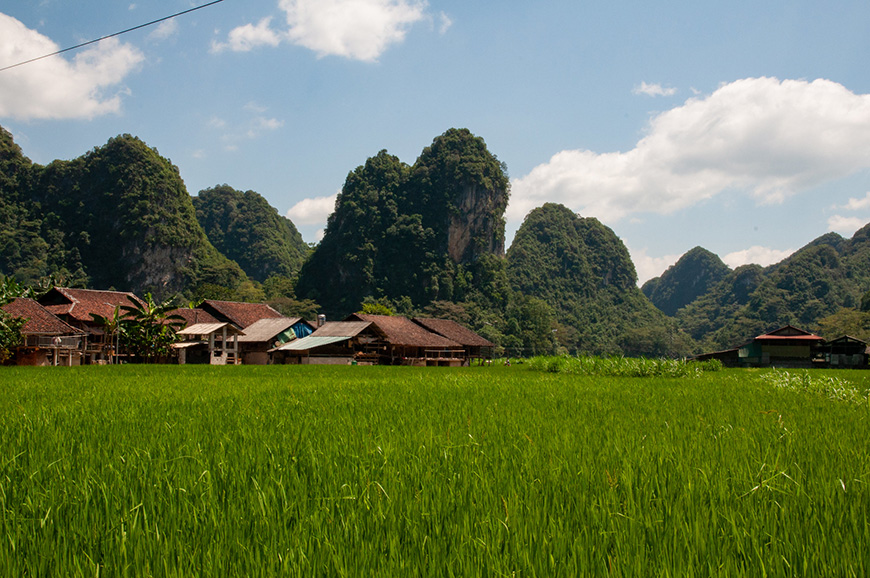
A more authentic and immersive experience - Photo : Mr Linh's adventures
Benefits of sustainable tourism
Beyond the environmental benefits, the press highlights the many advantages that sustainable tourism offers to travelers themselves. An eco-responsible holiday offers a more authentic and immersive experience, connecting with local communities and discovering confidential places off the beaten track.
What's more, opting for sustainable tourism brings a sense of well-being and positive contribution to the destination visited. Travelers can enjoy their stay to the full, with the satisfaction of having had a beneficial impact on the environment and local populations.
Challenges and prospects for eco-tourism in Vietnam
Although sustainable tourism is booming,
major challenges remain. It is vital to ensure that the initiatives put in place genuinely benefit local communities and the environment, and are not merely window-dressing.
Close, long-term collaboration between government authorities, the tourism industry and local communities is essential. Only a synergy of all the players involved will enable truly sustainable and responsible tourism development, guaranteeing respect for ecosystems and positive spin-offs for host communities.
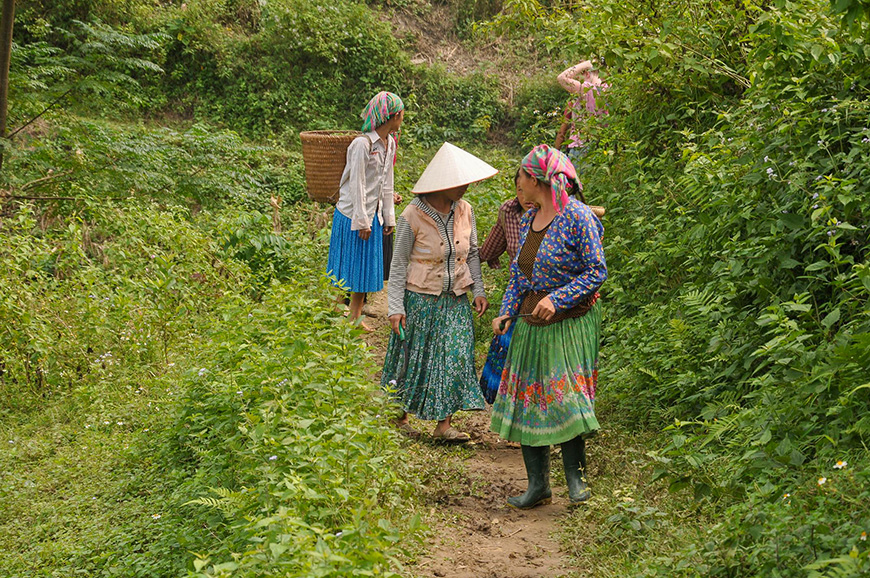
Ecotourism benefits to local people - Photo : Mr Linh's adventures
Guide to sustainable travel in Vietnam
Having lived in Vietnam for several years, I've witnessed the positive changes that have taken place recently in terms of sustainable development. The quadrupling of the number of eco-responsible stores in cities, the adoption of non-plastic straws by restaurants and bars, and the efforts of take-away outlets to wrap food in paper or banana leaves rather than plastic, are notable advances.
However, these virtuous practices are still far from becoming the norm. A great deal of progress remains to be made if these changes in behavior are to take a lasting hold.
So,
what can you do as a traveler to make your stay in Vietnam as eco-responsible as possible? By following these recommendations, you can certainly minimize the environmental footprint of your trip.
Before you leave
Choose an
eco-responsible travel agency, committed to environmentally-friendly practices and supporting local communities. Do your research to find a partner that matches your values.
Choose a slow, extended trip, allowing you to fully appreciate Vietnamese culture and landscapes, while reducing your carbon footprint.
Book
eco-friendly accommodation, among the many hotels and resorts committed to minimizing their environmental impact.
Pack your luggage in an eco-responsible way: travel light to reduce your carbon footprint, with versatile clothes to coordinate. Avoid disposable plastic products such as large shampoo bottles, by opting for solid formulas or reusable containers to be refilled on site.
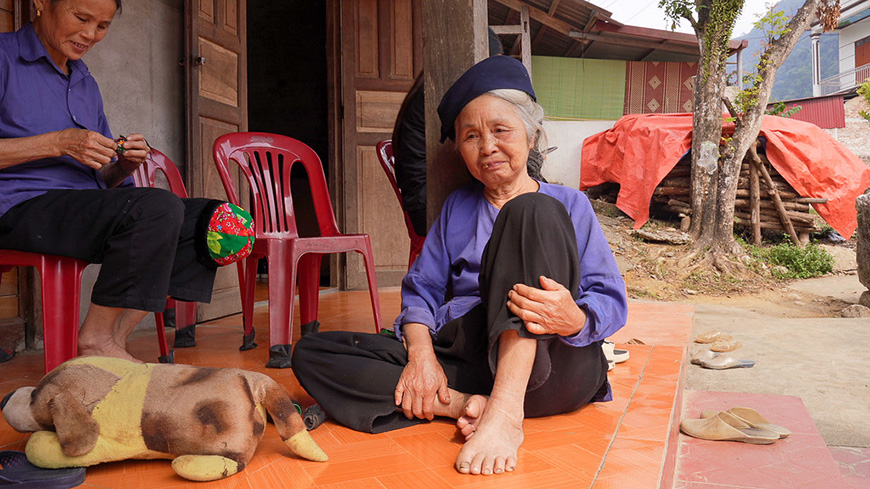
Community Based Tourism in Vietnam - Photo : Mr Linh's adventures
During your trip
Choose the right destination at the right time.
Vietnam's elongated geography and diverse climates mean that you need to think carefully about your choice of destination to limit your carbon footprint. Choose regions accessible by direct flight from your place of residence. If domestic flights are essential, consider offsetting their CO2 emissions.
Take the seasons into account when planning your trip. The monsoon season generally runs from May to October in the north, and from September to December in the south. As far as possible, avoid the peak tourist season, from December to February, when flagship destinations are often overcrowded.
Opt for sustainable accommodation
More and more eco-lodges and eco-friendly hotels are springing up in Vietnam, committed to minimizing their environmental footprint. Using local and sustainable materials, implementing water and energy-saving practices, and supporting local communities are among their priorities.
Opting for these eco-responsible accommodations not only reduces the impact of your stay, but also promotes virtuous initiatives working towards more sustainable tourism in Vietnam.
Get around ecologically
Once you're in Vietnam, it's best to
use eco-friendly modes of transport, avoiding polluting cabs and private cars wherever possible. Instead, opt for bicycles, electric scooters, public transport such as buses or the Vietnamese rail network, which serves most major cities well.
Walking is also an excellent way to discover towns and villages while soaking up local life. If you need to rent a scooter, choose a rental company offering environmentally-friendly models.
Support local businesses
During your stay in Vietnam, make every effort to support local businesses, whether they are accommodations, restaurants, tour guides or shops. By opting for these locally rooted players, you contribute directly to the
local economy and job creation.
Choose family-run restaurants and street stalls rather than international chains. For your purchases, prefer traditional markets and local artisans. This way, not only are you supporting families and giving back to the host community, but you're also encouraging short, ecological circuits, without polluting transfers by boat, plane or truck.
Vietnam is full of great markets to buy from. Knowing the basics of Vietnamese numbering will come in very handy. You'll be amazed by the abundance and diversity of fruit and vegetables, at very affordable prices. And if you stay long enough to see the changing seasons, you'll have the chance to discover a constantly renewed offer. Don't forget your reusable bags!
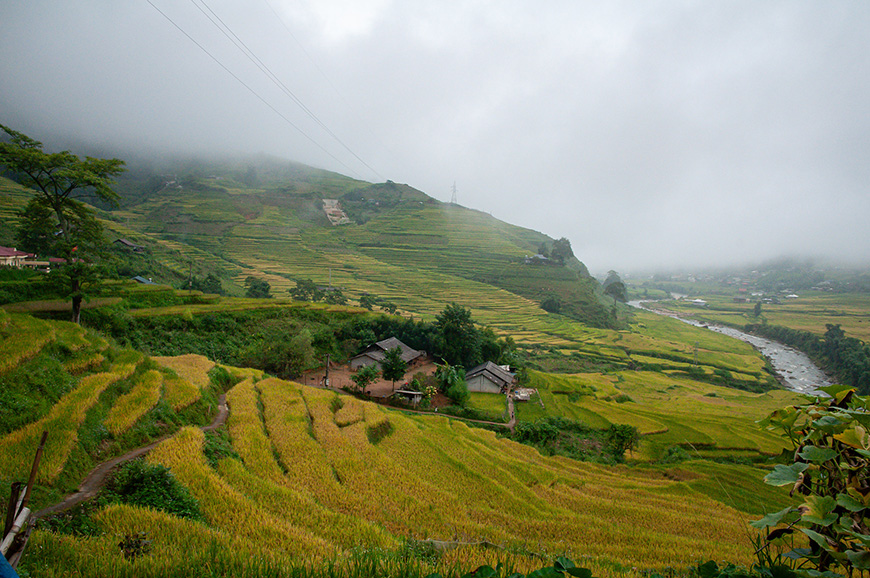
Tourism & agriculture in Vietnam - Photo : Mr Linh's adventures
Reduce your plastic consumption
Plastic pollution is a major issue in Vietnam. To limit your footprint, carry a reusable water bottle and avoid buying disposable water bottles. Systematically refuse plastic straws and cutlery, especially when ordering takeaways.
And don't hesitate to use reusable bags for your shopping. Adopt these simple but essential gestures to drastically reduce your consumption of single-use plastic during your stay.
Eco-responsible activities
In addition to
visit to natural reserves and national parks, there are a number of interesting activities aimed at sustainably supporting local communities in Vietnam.
Community tourism is one of them, offering visitors the chance to immerse themselves in everyday village life and participate in farming, craft activities and local cuisine.
Handicraft workshops allow tourists to discover and learn traditional skills such as lacquerware, pottery, weaving and silk painting, while contributing to the preservation of these crafts.
Educational volunteering is another option, where volunteers can teach English, computer skills or organize fun activities in schools and community centers, particularly in rural areas. Eco-tourism also offers opportunities to participate in reforestation, mangrove protection and sustainable agriculture projects, in exchange for accommodation and meals in village communities. Finally,
homestay accommodation allows travellers to experience local traditions and lifestyles at first hand, while paying host families directly.
Conclusion
In short, it's essential to give priority to initiatives managed by and for the benefit of the communities themselves, in a spirit of mutual respect.
Enjoy your preparations and your stay in Vietnam!
Few ideas for a sustainable stay in Vietnam